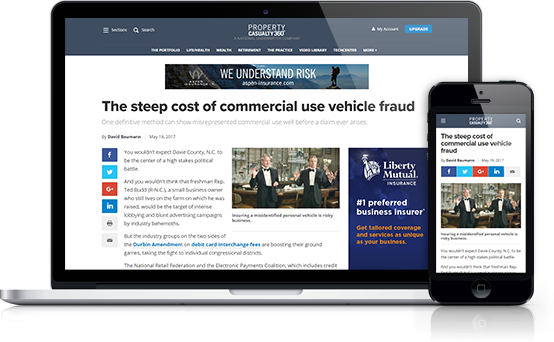 |
Welcome to March, where we again join the CPCU Society and many other insurance organizations in celebrating National Ethics Month. Several months ago, I received an e-mail, from alert reader Rick Mayhew, that I saved for this occasion. Chris,I ran into an interesting situation the other day. An agent told us about a time he lied to an insured and felt like he did the right thing. A young insured came into his office and asked if his life insurance policy covered suicide. It was beyond the contestability time period but the agent told the person, “No, it does not.” Apparently this young person was struggling with some issues and the agent was concerned that a “yes” answer might lead him to injure himself.That raises the interesting ethical question: When it is OK to lie? Rick, that is not just an interesting ethical question–it’s one of the all-time biggies. Forget ethics instructors; the “how many angels can stand on the head of a pin?” query pales by comparison to the wheels-within-wheels of “when is it OK to lie?” Great scholars, learned philosophers and spiritual leaders over the centuries have debated and discoursed on this very subject, often to no avail. And to attempt this outside the halls of academe and cathedrals, much less within the confines of an insurance magazine? Only a true fool would attempt such a Sisyphean task.Rick, you asked the right man.Let me provide a brief summary of my approach to ethics training and discussion. The best way to remove ethics from pure theory and apply it to everyday realistic situations is to move beyond the “ethics is morality” discussion. As a working premise, I define morality as making “right versus wrong” decisions, and ethics as deciding between “right versus right.” A weakness of purely arguing morality is we can often debate to no conclusive end “right versus wrong.” Depending on our culture, our country, our religious beliefs or simply the way we were raised, our ideas of what is right and wrong can be in direct conflict with another, equally conscientious person, raised with different beliefs.For example, consider polygamy. Considered by the vast majority of our society to be immoral, to say nothing of illegal, polygamists today can be jailed as well as scorned. Yet in the Old Testament, men considered to be some of the greatest heroes of Islam, Judaism and Christianity were happily married to multiple wives. Well, happily may be a stretch, which may explain the later change to monogamy, but I digress.I’m all for morality, but as a practical approach to everyday insurance situations, such conflicting belief systems far too often lead us from the high ground into the swamps of argument and dissension, to no avail in reaching a proper ethical decision.The strength of a “right versus right” definition for ethical behavior is we move away from the argumentative arena of “which choice is wrong” to a question that will be familiar to all risk managers: Of all the possible right choices, which is the best right?As with risk management, the answer to that question arises from the key goals of the client. Which possible solution best gets us where we want to go?So in our situation, what is the key goal of ethical behavior in insurance? I suggest it is building trust. Insurance is an intangible. We sell a promise of future behavior in return for present compensation. Our ability to offer true value to clients is directly tied to their trust that we will deliver that promise at the proper time.Yet it’s a given that we aren’t the most popular industry in town. Our public image takes a beating every time some catastrophe reveals the disconnect between what clients thought they were promised and what we actually delivered. Look no further than the anger and sense of betrayal arising from Hurricane Katrina, the California wildfires or the Midwest flooding. Numerous folks have the same complaint: that when they were paying us, we made things sound real simple. Now that it’s time for us to pay them, everything seems to be complicated. Thus we end up with court cases bickering over what often seems arcane and esoteric policy language, while insureds grow angrier.Accepting that establishing and building trust is the ultimate goal of ethical behavior for those in our profession. Let’s return to Rick’s question, with a slight rephrasing: “When, if ever, will a lie build trust in the one lied to?”Well, duh–never.Rick’s acquaintance meant well, and his choice may have helped the young client avoid a tragic error in judgment. But from an ethical standpoint he didn’t make a good choice–he got lucky.
Consider all the assumptions the agent made in deciding whether the ethical thing to do was lie:
 Copyright © 2025 ALM Global, LLC. All Rights Reserved.
Copyright © 2025 ALM Global, LLC. All Rights Reserved.

